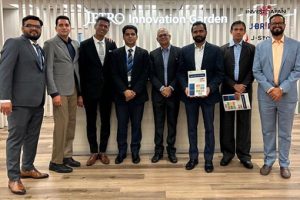Japanese cities are teaming up with major technology companies such as Microsoft and Google to establish comprehensive guidelines for the use of artificial intelligence (AI) in government services. The initiative, spearheaded by the Institute of Administrative Management and slated for completion by April 2025, aims to address pressing challenges such as labor shortages and the imperative for operational efficiency. With participation from industry leaders like Amazon Web Services and Oracle, alongside the active involvement of government ministries including the Ministry of Economy, Trade, and Industry, the Ministry of Internal Affairs and Communications, the Cabinet Office, and the Digital Agency, the consortium seeks to leverage a broad spectrum of expertise and perspectives.
The driving force behind the adoption of AI in Japanese municipalities stems from the urgent need to streamline operations and optimize resource allocation. For instance, Osaka has recently integrated generative AI solutions into its administrative processes, enabling tasks such as document creation, summarization, and project planning to be executed more efficiently. Similarly, Yokosuka has embraced Microsoft-supported OpenAI technology, specifically ChatGPT, to facilitate communication with residents in English and manage inquiries effectively.
However, the widespread adoption of AI in governmental functions also introduces inherent risks, including the propagation of misinformation and the potential compromise of private data. To proactively mitigate these risks, the consortium will draw insights from municipalities that have already implemented AI solutions and leverage these learnings to craft comprehensive guidelines for responsible AI deployment. By collaborating with both industry and government stakeholders, the consortium aims to ensure that the guidelines reflect best practices and adhere to rigorous standards of data privacy and security.
Moreover, the initiative aligns with broader efforts at the national level, where Japan’s economy and communications ministries have recently established overarching guidelines for AI usage. Building upon these foundational principles, the consortium will tailor its guidelines to the specific needs and circumstances of local governments, providing actionable insights and practical recommendations for navigating the complexities of AI integration.
Ultimately, the consortium’s efforts represent a pivotal step towards fostering a culture of responsible AI adoption within Japanese municipalities. By promoting transparency, accountability, and ethical considerations in the deployment of AI-driven solutions, the guidelines seek to empower local governments to harness the transformative potential of AI while safeguarding against potential pitfalls and risks. Through collaborative engagement and knowledge-sharing, the consortium endeavors to pave the way for a future where AI serves as a catalyst for positive societal impact and inclusive growth.






















